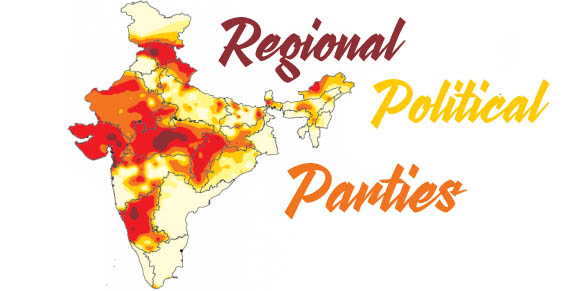In 2014, India saw the formalised creation of Telangana, its 29th state. The creation of a separate state was supposedly done to herald a new age of progress for the region, which was supposedly shackled by the Andhra Pradesh state administration’s neglect. The move was celebrated in certain quarters as a ‘landmark’ victory for the people of Telangana. Most observers, however, remained silent on the sidelines, watching the drama unfold with sceptical eyes.

The reason for this scepticism was well found. Despite the argument about development being the primary motive for the separation, in truth this secession – one of the most disruptive state separations yet seen by the country – was based largely on the region’s distinct cultural identity. In light of such hidden agendas, any talk about development seems extremely rhetorical, for it was well established that the Seemandhra region needed a more urgent focus on development.
No, this secession only served to highlight the increasing role regionalist proclivities are playing in politics today. Wikipedia describes regionalism in politics as “a political ideology that focuses on the notional or normative interests of a particular region, group of regions or another subnational entity”, which may be “delineated by political divisions, administrative divisions, cultural boundaries, linguistic regions, and religious geography, among others.” But why do political parties promote regionalism? This question can be answered by one simple word – power. Lacking a national presence, regional parties have to depend upon the support of the local population for their political survival, which they do by championing the cause of regional needs and requirements.
However, politics being the complex game that it is, political parties more often than not tend confuse regional development with regionalist behaviour and polarise the local population into ‘us’ and ‘them’ in order to consolidate their own powerbase. From the lack of employment opportunities to draught, the so-called interlopers are held responsible for all problems faced by the region’s ‘natives’. Shiv Sena has been doing it for years in Maharashtra, while its offshoot, Maharashtra Navnirman Sena (MNS), has taken zealous regional evangelism to new heights by announcing war against all ‘outsiders’.
Is this approach helpful? Not really, and not for anyone involved. While political parties may find that promoting regionalism serves to boost their local powerbase for a time, the very ideology that they adopt also serves to restrict them from ever expanding beyond their regional borders. Development also takes a hit as the hostile atmosphere created by regionalist elements tends to put off businesses and workers from entering the area.
But most importantly, such an approach can be extremely detrimental to the integrity of the country as a whole. Having today split Andhra Pradesh into two based chiefly on regional cultural differences, what is to stop renewed demands for Bodoland, or the formation of Aazad Kashmir? Punjab has already borne witness to the mayhem that ensues when such evangelism turns violent and felt the repercussions of that in the years that followed. Assam and J&K also have the issues of stagnation, violence and under-development affecting several areas.
The results of regional extremism are there for everyone to see. There can be no winners in this particular scenario, only people who have lost less than others. The million dollar question, however, still remains – would our politicians ever wisen up to this truth, or would the pursuit of momentary gains keep blinding them into senseless actions?































